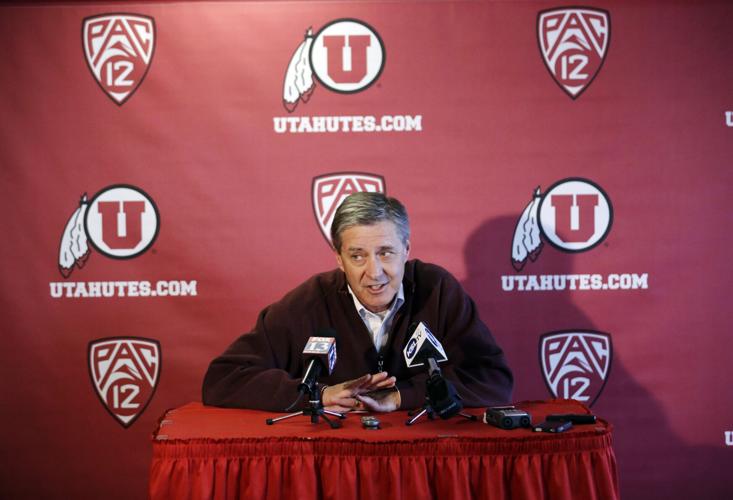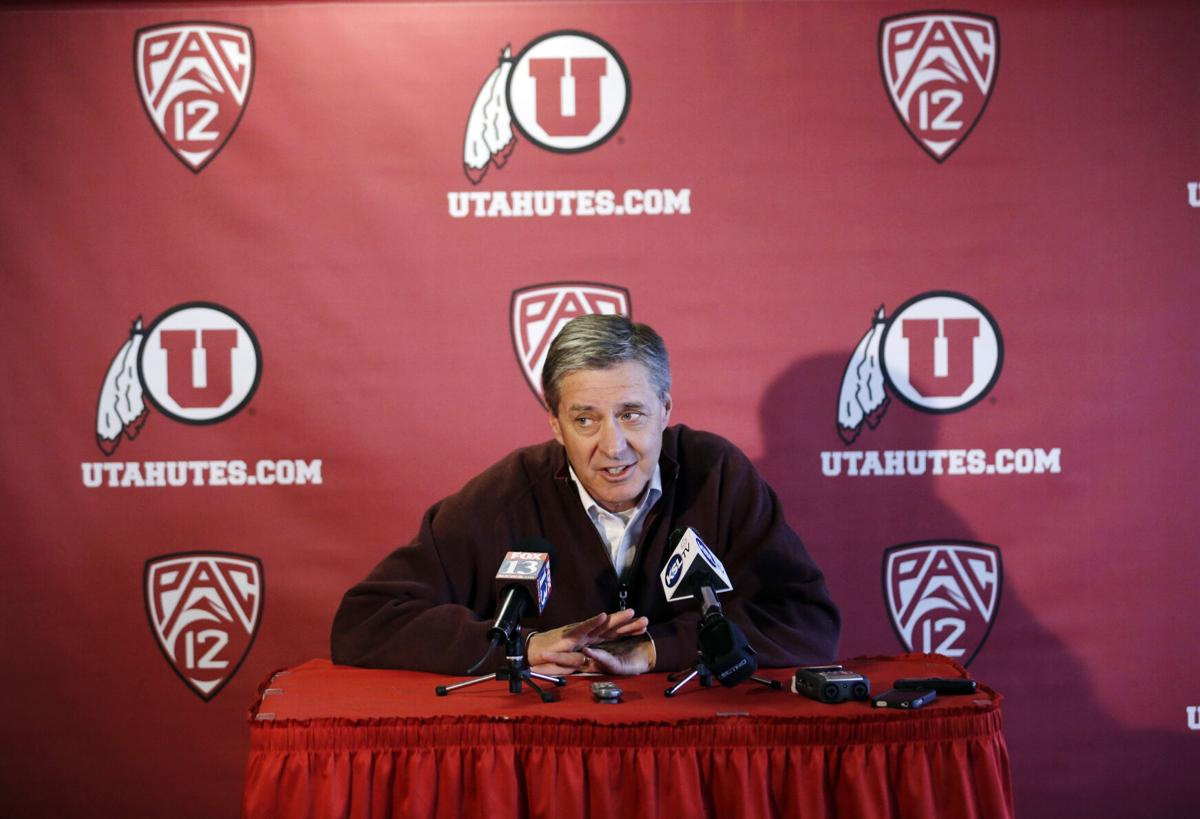Pac-12 schools would have little to gain financially from jumping to the Big 12, according to a veteran of realignment who’s watching the chaos unfold from his retirement chair.
“I see no benefit to somebody from the Pac-12 going to the Big 12,” said former Utah athletic director Chris Hill, who oversaw the Utes’ 2011 move into the Pac-12.
Hill retired in 2018 after a stellar three-decade career in which he hired Urban Meyer and Kyle Whittingham. He has tracked the realignment situation closely and is aware of speculation that several Pac-12 schools, including the Utes, could jump to the Big 12.
Asked specifically about the Utah administration’s preference, Hill offered:”They all want to stay. They love the schools they’re associated with and the areas they recruit and play. Utah has a lot of alumni in the Bay Area. There aren’t alumni in Waco. Those things matter.”
Nor does Hill believe it’s essential for Utah to partner with rival BYU, which is set to enter the Big 12 next year.
“They just need to play each other,” he said. “Do they need to be in the same league to do that? Maybe, but maybe not.”
Hill believes football should be treated as a separate business within college sports and will eventually feature a 48-team upper division. That bifurcation could happen in the next few years — or not for a decade.

Unless the Big Ten or SEC come calling, the 36 schools remaining in the Pac-12, Big 12 and ACC must recalibrate their strategy and beware of lifeboats that aren’t as sturdy as they appear.
“Their market is their market,” Hill said, referring to the media rights value held by any given school. “Arizona’s worth in the Big 12 is the same as it is in the Pac-12. The finances of moving won’t help anybody.
“What difference does it make if you’re getting $35 million a year in the Pac-12 versus $40 million a year in the Big 12? Either way, it’s not going to move the dial for you. The only benefit from switching is to destroy the other league.”
Hill isn’t convinced the Pac-12 must expand following the departures of USC and UCLA in 2024. The schools currently in the Big 12 could be difficult to poach because of the league’s bylaws, which feature a 99-year commitment.
Section 3 (“Withdrawals and Sanctions”) suggests an exit fee equal to two years of conference revenue — approximately $80 million — would apply:
“Any Withdrawing Member shall pay to the Conference a commitment buyout fee (the “Buyout Amount”) in an amount equal to the sum of the amount of distributions that otherwise would be paid to the Member during the final two years of its membership in the Conference.”
Would that stipulation apply to the four schools entering the conference next year (Cincinnati, UCF, Houston and Brigham Young)? That depends on the documents they have signed to this point.
“If the Big 12 schools are off the table, then you could go to the Mountain West,” Hill said. “But I’d stabilize. I wouldn’t feel the need to take somebody now. Take a breath.”
The Pac-12’s fate depends largely on the Big Ten’s expansion plans. Lacking the option to accompany USC and UCLA, the most valuable remaining programs (Washington, Oregon and Stanford) might prefer to remain in a reconfigured conference rather than hopping to the Big 12 for what would be less than “move the dial” revenue.
And nobody would want to sign a long-term contract with the Big 12 given the likelihood of more realignment in the next few years.
“They are worried about safety in numbers,” Hill said. “But unless somebody believes the Pac-12 schools are leaving (to the Big Ten), I don’t see why they would go anywhere.”






